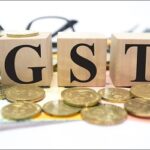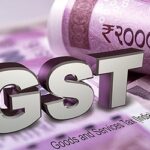The GST Council has made significant recommendations encompassing changes in GST rates, measures to provide relief to individuals, facilitate trade, and streamline compliance procedures. Here is a comprehensive overview of these recommendations:
Changes in GST Rates of Goods
1. Goods
- The GST rate on Fortified Rice Kernel (FRK), classified under HSN 1904, has been reduced to 5%.
- Gene therapy has been exempted from GST, providing relief to the healthcare sector.
- The IGST exemption under Notification 19/2019-Customs has been extended to include systems, subsystems, equipment, parts, tools, and software intended for the assembly or manufacture of the LRSAM system.
- The rate of Compensation Cess on supplies to merchant exporters has been reduced to 0.1%, aligning it with the GST rate on such supplies.
- Imports of all equipment and consumable samples by the International Atomic Energy Agency (IAEA) Inspection Team are now exempt from IGST, subject to specified conditions.
- A concessional GST rate of 5% is extended on food inputs under HSN 19 or 21 used in food preparations for free distribution to economically weaker sections under government programs.
2. Services
- Sponsorship services provided by corporate entities will now fall under the Forward Charge Mechanism.
- GST exemptions have been granted for contributions made by general insurance companies from third-party motor vehicle premiums to the Motor Vehicle Accident Fund, which provides compensation for road accident victims.
- Definitions related to declared tariffs and specified premises have been revised. GST rates for restaurant services in hotels will depend on the actual value of supply for any unit of accommodation. These changes will be effective from April 1, 2025, to ensure smooth transitions.
- Taxpayers under the composition levy scheme have been excluded from the reverse charge mechanism for renting commercial property, effective retrospectively from October 10, 2024.
Other Changes Related to Goods and Services
- The GST rate on the sale of old and used vehicles, including EVs, has been increased from 12% to 18%. GST will apply only to the supplier’s margin.
- Autoclaved Aerated Concrete (ACC) blocks with over 50% fly ash content will attract a 12% GST.
- Supplies of fresh or dried pepper and raisins by agriculturists are exempt from GST.
- The definition of ‘pre-packaged and labelled’ has been amended to include commodities intended for retail sale in packages of up to 25 kg or 25 liters.
- Clarifications on popcorn GST rates have been issued. Popcorn mixed with salt and spices attracts 5% GST if unpackaged and 12% if packaged. Popcorn mixed with sugar is classified as sugar confectionery and attracts 18% GST.
- Clarifications on Compensation Cess applicability for ground clearance were made effective from July 26, 2023.
- Payment Aggregators regulated by RBI are now exempt under entry 34 of Notification No. 12/2017-CT(R).
- Penal charges levied by banks and NBFCs for loan term violations are exempt from GST.
Measures for Facilitating Trade
1. Amendments in Schedule III of CGST Act, 2017:
A new clause explicitly states that supply of goods warehoused in SEZs or FTWZs to any person before clearance for export or domestic tariff area transactions will neither be treated as goods nor services.
2. Taxability of Vouchers:
- Ambiguities in voucher taxation have been resolved by omitting sections 12(4) and 13(4) from the CGST Act and Rule 32(6) from the CGST Rules.
- Transactions in vouchers will not be treated as supplies of goods or services.
- Additional services related to vouchers will attract GST.
- Breakage income from unredeemed vouchers will not be taxable.
3. Issuance of Circulars:
- Clarifications on ITC reversal by electronic commerce operators (ECOs) for supplies under section 9(5) of the CGST Act.
- Clarifications on ITC availability in Ex-Works contracts.
- Waivers for late fees on FORM GSTR-9C filing delays for 2017-18 to 2022-23 if completed by March 31, 2025.
Measures for Streamlining Compliance in GST
1. Track and Trace Mechanism:
A new provision, Section 148A, will empower the government to enforce a Track and Trace Mechanism for specific commodities using unique identification markings.
2. Recording Details for Online Services:
Suppliers of online services must record the state name of unregistered recipients on tax invoices to determine the place of supply under section 12(2)(b) of the IGST Act.
Other Measures Pertaining to Law and Procedure
1. Amendment in Section 17(5)(d):
The phrase “plant or machinery” is replaced with “plant and machinery,” effective from July 1, 2017.
2. Pre-Deposit for Penalty Appeals:
Pre-deposit rates for penalty appeals are revised to 10% for both Appellate Authority and Appellate Tribunal cases without tax demand involvement.
3. Definitions of Local and Municipal Funds:
Section 2(69) of the CGST Act will now include definitions of Local Fund and Municipal Fund.
4. ISD Mechanism:
Sections 2(61) and 20(1) of the CGST Act are amended to cover inter-state RCM transactions under the ISD mechanism, effective April 1, 2025.
5. Temporary Identification Numbers:
A new rule (16A) provides temporary identification numbers for unregistered persons making GST payments.
6. Composition Levy Amendments:
FORM CMP-02 users can now modify their category of registered person using FORM GST REG-14.
7. Invoice Management System (IMS):
- Section 38 and Rule 60 are amended to integrate IMS with FORM GSTR-2B generation.
- Section 34(2) and Rule 67B are introduced to ensure output tax liability adjustments against credit notes.
- FORM GSTR-3B filing will be permitted only after FORM GSTR-2B is available on the portal.
Additional Measures
The GST Council has approved measures addressing IGST settlement issues, procedural rules for GSTAT, and restructuring the GST Compensation mechanism. A Group of Ministers will examine policies related to natural disaster levies. The issue of GST on charges for granting FSI by municipalities remains under review.
These recommendations will take effect through relevant circulars, notifications, and amendments, ensuring a structured and equitable GST framework for all stakeholders.







